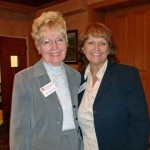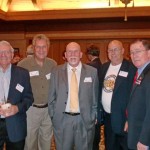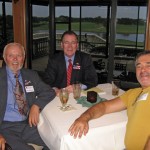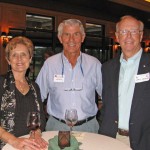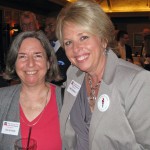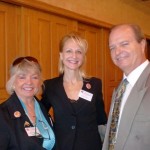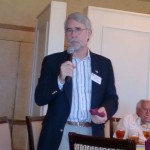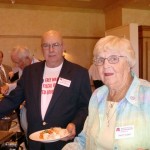GOP Booth at Palm Beach Gardens Green Market
Palm Beach Gardens Green Market:
- Sunday November 20, 27, Dec 11 & 18
- 8:00 AM – 1:00 PM
- Market is located at City Hall Complex next to PBG Fire Station # 1 at 4301 Burns Road
- We will register volunteers
- We will direct people to SOE web for voter registration
- We will hand out information on issues and candidates
- Our booth will be recognized by the American flag proudly on display and the elephant logo
- Candidates can stand in the booth and speak to visitors
- Candidates are allowed to walk around but not campaign as walking
- All handouts can be placed at the booth
- All signs can be placed at the booth
- Contact person is Linda Gore- please call 686-1616 to volunteer
Senator Nelson Calls for Investigation of Conservative Activists
A Look Inside ACORN
Join us on November 15 for a special program provided by RCPB and Americans for Prosperity.

Conservative Solutions to Illegal Immigration
Our October meeting featured a debate on solutions to illegal immigration in Florida. Moderated by Rick Kozell, the panel consisted of Florida 82 Representative William Snyder, Brewster Bevis of Associated Industries of Florida, and two local business owners who confront the issue on a regular basis, Richard Roth of Roth Farms, and Sean Rooney of Link Staffing. A synopsis will follow.
Pictures from Delia and Fred.
Immigration Forum for October Meeting
Join the Cut Spending Now Rally on October 19th in West Palm Beach
Candidate Training Classes
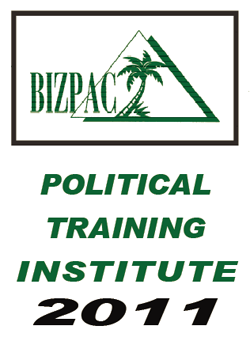
Are you thinking about being a candidate for public office? Not sure how to get started?
The BizPac Political Training Institute will be holding classes over the next four weeks that will answer all your questions.
For more information:
The BIZPAC Political Training Institute (PTI) is designed to give participants a firsthand look at the political process and the technical details of operating a political campaign. From demographic profiles to press relations and fund raising, PTI looks at every aspect and idiosyncrasy of the political campaign process and gives participants the knowledge and the resources they need to enter the political arena. Good for potential candidates, campaign workers or volunteers, PTI covers the do’s and don’ts of successful political campaigning.
PTI includes four Tuesday night sessions beginning October 11th. Each session is held from 6pm-9pm and includes dinner. The schedule is as follows:
Session 1 – Becoming a Candidate and Creating a Campaign, October 11
Session 2 – Funding Your Campaign (Smile & Dial), October 18
Session 3 – Candidate Presentation and Image, October 25
Session 4 – Communicating The Campaign Message to Win, November 1
Each night will feature a panel of instructors including political consultants, elected officials, former candidates, representatives from the media and other professionals who work with candidates.
The cost to attend all four session is $95.
County Sets Tax Rate for 2012
September Lunch with Slade O’Brien had a Focus on Activism
Today’s RCPB Luncheon was focused on activism. After the Invocation and Pledge led by Sid Lanier, Club President Melissa Nash welcomed Honoraries – Gary Nikolits, PBC Property Appraiser and Bill Diamond, Palm Beach City Council. Melissa then had several club members briefly comment on their experiences at Presidency 5 and CPAC-FL in Orlando the prior week.
Melissa then introduced Slade O’Brien, Florida State Director of Americans for Prosperity. While Slade covers all of Florida, he lives in Palm Beach County. He has been leading several seminars on activism and GOTV in the area and folks should take advantage of the next ones when available. For more information on AFP Florida go here..
Slade also mentioned a few other organizations: True the Vote was one of them. Also he suggested joining Liberty Linked as an activist website that enables one to connect with fellow conservatives. He talked about the importance of social media in the upcoming election cycle, and touched on Anita MonCrief and her whisteblower role in the Acorn scandals.
Melissa also pointed out that future REC meetings will be held at the Vista Center and that October’s RCPB meeting will be a Special evening meeting with a panel discussin Illegal Immigration in Florida.
Pictures by Delia
Herman Cain Walks Away with P5
At 37%, Herman Cain collected more votes at the Florida Straw Poll than both Mitt Romney and Rick Perry combined. How did this happen?
Most delegates came to the P5 convention with a pretty good idea of who they were going to support, and like the national polls would indicate, Rick Perry and Mitt Romney were the overwhelming favorites. In my case, I had pretty much decided to join the Perry campaign after the convention and was seeking a confirmation of that decision.
On Thursday, all the candidates appeared at Ralph Reed’s Faith and Freedom gathering. Perry did OK, giving a variation of his stump speech (“First, don’t spend all the money..”). Most of the others were predictable and although Cain was inspiring, he didn’t really register with me. That evening, at the Fox/Google debate, most candidates held their ground, but Perry faltered badly in two ways. First, he insulted many people on the in-state tuition for illegal aliens issue by saying that if you opposed it you “didn’t have a heart”. Second, a seemingly rehearsed attack on Mitt Romney over flip-flops dissolved into a puddle of incoherence. Not good. Herman Cain again did very well but did not register as I was still working out how to overlook Perry’s problems and rationalize my support for him.
On Friday, at the CPAC conference, Perry had ample opportunity to better explain his tuition stance but declined to do so. He could have explained that unlike the federal Dream Act, in Texas it involves no amnesty and simply applies the in-state rules to “residents”. Furthermore, it was passed with an overwhelming majority in the legislature and many other states provide the same kind of program. (I was still rationalising my support). Once again, Herman Cain was impressive.
On Saturday morning, we attended the Rick Perry breakfast. This would be the fourth time to see him and another chance at redemption. The breakfast was impressive – a full fancy buffet, and there was seating for over 1000. By my count, about 500 were in attendance and many of the seats were empty. After a while, the candidate entered from the corner of the large room and was immediately mobbed by press and eager supporters as he slowly made his way toward the center of the room. It had been announced that he would “greet everyone personally” and many of us waited for him to make his way to our side of the room. After 45 minutes of this he had not crossed the center line of the room and those on our side were visibly annoyed that they were sitting on their hands waiting for the guy. Finally, he makes for the stage and delivers 8 minutes of warmed over remarks (“First don’t spend all the money”). Four chances, four flops. Finally we have crossed the line and start thinking about which other candidate to support, but we will give him one more chance in his afternoon speech before the straw poll.
Not. By the afternoon, Rick Perry was on his way to Michigan and left a “surrogate” to speak for him. Scratch Rick Perry from further consideration.
That left (for me) Herman Cain, Michele Bachmann and Rick Santorum. Mitt Romney stopped being a choice long ago for many reasons too long to go into here. The others are clearly not in the same league. So we listened to the speeches with an open mind. Cain, Santorum and Gingrich had stayed to deliver their closing remarks, others had surrogates, Bachmann and Romney did not participate. Many around us were having second thoughts about Perry as well, particularly those with a “tea party” orientation. The more mainstream Republicans were comfortably in the Romney camp.
When Herman Cain made his remarks, the room came alive. This is what we were waiting for since Thursday. In my notes I wrote: Broad coverage of the issues, executive style, ARTICULATED VISION, powers of persuasion, and projection of leadership. He pressed all the right (conservative) buttons, but did it in a way that was clear, concise, motivating and persuasive. You could see this guy standing next to Barack Obama and wiping the stage with him. The excitement was palpable.
At that point I decided to vote for Herman Cain. Taking to heart Andrew Brietbart’s advice to not let the media define who is “electable”, I voted my heart. He may not win the nomination or even the Florida primary as there is a rough ride ahead, but now, today, this is a man who can be President.
Watch the video from the Saturday event and decide for yourself:
Part 1
Part 2


